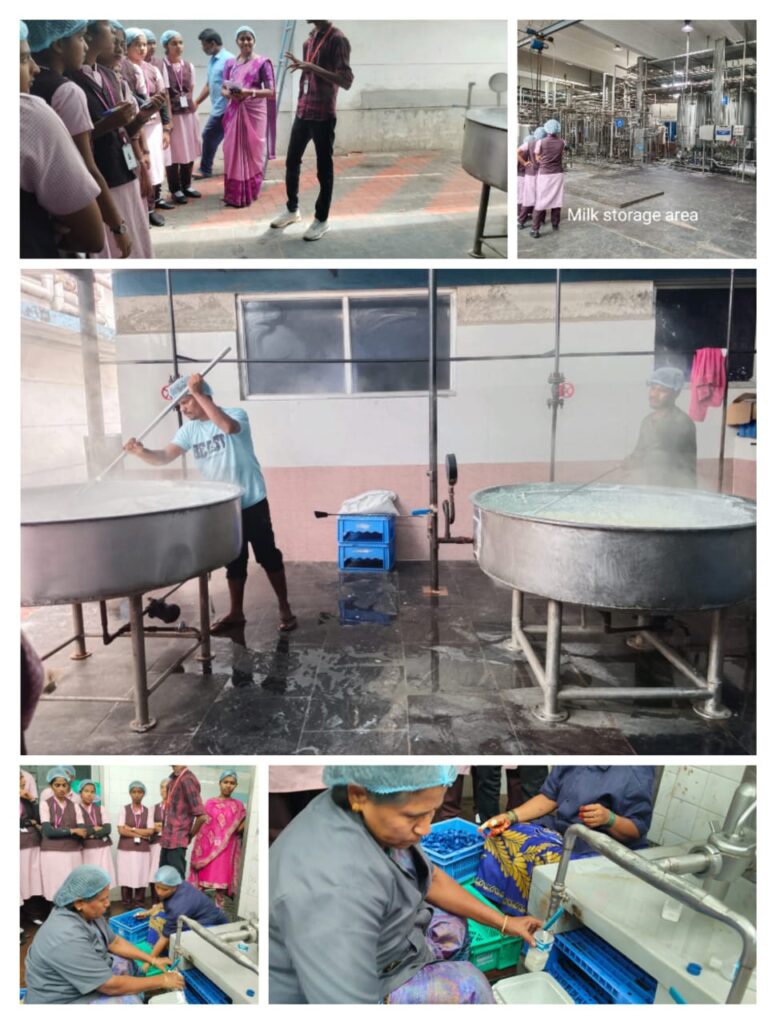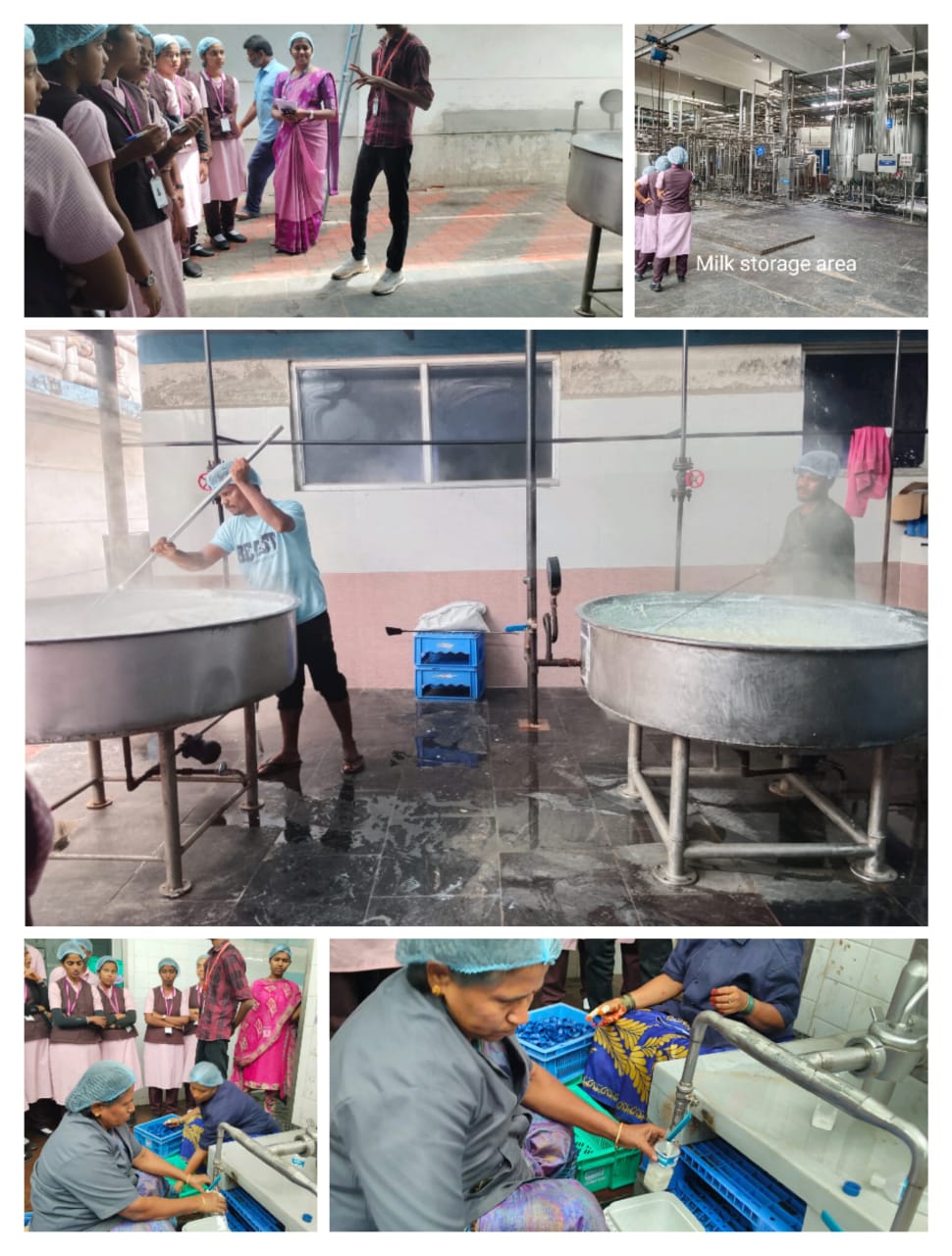
Educational Field Visit to Aavin Milk Dairy – A Step into Dairy Hygiene and Public Health Nutrition
Organized by Sree Abirami School of Nursing, Coimbatore
Date: 25th June 2025 | Venue: Aavin Milk Dairy, Pudupalayam, Coimbatore
On 25th June 2025, the first-year GNM students of Sree Abirami School of Nursing, Coimbatore, participated in a highly enriching educational field visit to Aavin Milk Dairy, Pudupalayam, Coimbatore. A total of 32 students, accompanied by faculty members Mrs. Sharmila and **Ms. Jestin visited the facility to gain real-time exposure to the processes involved in milk procurement, processing, packaging, and quality control.
Aavin, one of Tamil Nadu’s most trusted milk brands, operates under the Tamil Nadu Cooperative Milk Producers’ Federation Limited. Established in 1958, the brand is managed by the Department of Dairy Development, Government of Tamil Nadu, and has since played a vital role in ensuring fair pricing for milk producers while delivering safe, high-quality dairy products to millions of consumers across the state.
The visit began at 10:30 AM with official permissions from the Aavin authorities. The students were warmly welcomed and guided by the dairy staff into an orientation session that introduced them to the key stages of milk production. The session covered milk collection, quality testing, pasteurization, packaging, and production of value-added dairy products such as curd, butter, ghee, peda, and ice cream.
During the tour of the plant, students observed the cold chain process, starting from the arrival of raw milk collected from nearby villages. The milk is first subjected to rigorous testing to ensure that it meets quality standards for fat content, SNF (Solids Not Fat), temperature, and microbial safety. Any milk failing to meet quality norms is immediately rejected to ensure public safety.
The staff demonstrated the pasteurization process, which is essential in eliminating harmful bacteria while retaining the nutritional value of milk. This was followed by the homogenization and packaging stages, where milk is treated and packed in various sizes, ready for distribution. The dairy’s use of automated machines, hygienic handling systems, and strict cleanliness protocols impressed the students and showcased the role of technology in maintaining food safety.
The students also learned about value-added dairy products, which are produced on-site. The factory staff explained the preparation and storage of curd, butter, ghee, and popular sweets like peda and flavored milk products. Emphasis was placed on maintaining sanitary conditions, temperature control, and safe food handling practices throughout the production line.
An interesting part of the session was a brief historical overview of the dairy sector in Tamil Nadu. Aavin was established in 1958 and brought under the Tamil Nadu Dairy Development Department in 1965. Over the decades, it has become a model for cooperative milk production, combining farmers’ welfare with public nutrition.
To conclude the visit, students were treated to refreshing samples of Aavin buttermilk, and many purchased products such as peda, ice cream, and chocolates from the dairy outlet. This added a delightful and personal touch to the educational trip.
The field visit proved to be a valuable learning experience, enhancing students’ understanding of food safety, public nutrition, and the importance of hygienic practices in the food industry. It also reinforced the connection between nursing and community health, as safe milk and dairy consumption is directly linked to nutritional well-being.
By witnessing the dairy operations firsthand, students gained insights into the critical role of health monitoring in food production. This aligns with their future responsibilities as nurses—to promote community health and educate the public on safe dietary practices.
The visit to Aavin Milk Dairy reflects Sree Abirami School of Nursing’s continued effort to offer experiential learning opportunities that extend beyond classroom teaching and foster a deep understanding of public health systems.
